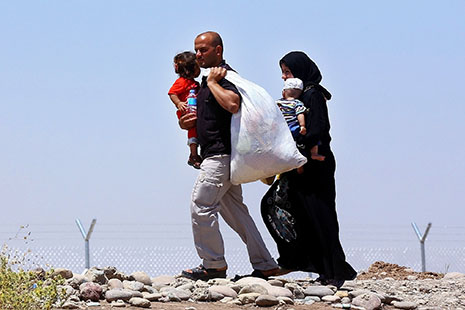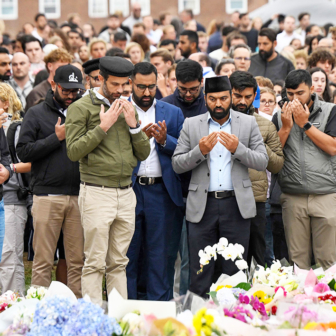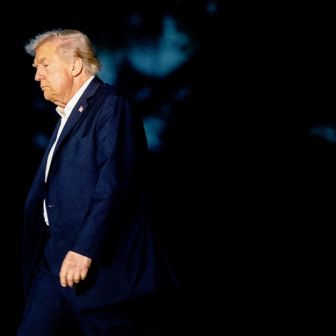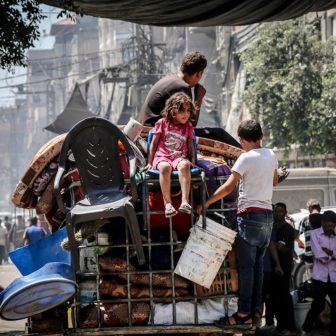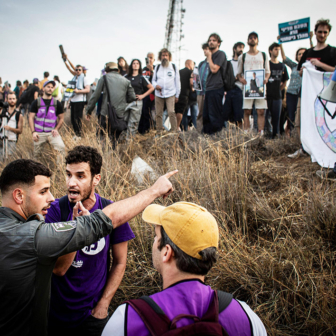The spectacular emergence of ISIS – the acronym stands for “the Islamic State in Iraq and Syria” or, more precisely, “the Islamic State in Iraq and al-Shams,” “al-Shams” effectively meaning the Levant – appears remarkable at first glance. Seemingly out of nowhere, it has overrun several key towns and cities in the central-north and central-west of Iraq, including Iraq’s second-largest city, Mosul. As they advance, ISIS fighters have brutally abused their enemies and imposed their extreme interpretation of an Islamic state on local populations. They seem to combine the fervour of an ideologically driven terrorist group and the strength of a well-organised militia, and few people appear willing to resist them.
But these are early days in this newest battle for Iraq’s future. ISIS may prove to be much less potent than it appears; certainly, it speaks for very few Iraqis. It faces formidable challenges in holding territorial gains and transforming into anything close to a functional government. And it has a lot more enemies than friends among the foreign governments with a stake in Iraq’s future.
ISIS’s dramatic rise is not so much a reflection of its capabilities as it is of the weak opposition it has encountered thus far. Its forces are highly motivated, for sure, and its leadership has “sold” ISIS very skilfully on social media and deftly created local sources of revenue in Syria. Many of its fighters have extensive combat experience in Iraq or Syria. This sounds ominous, especially since around 800 ISIS fighters overran some 30,000 Iraqi army soldiers and took Mosul on 10 June. But in Mosul, the Iraqi soldiers probably fled out of surprise and because of an unwillingness to fight for an unpopular government and prime minister in Baghdad, not just out of ineptness or cowardice. Because many of the soldiers were Sunni, moreover, they are less threatened by ISIS than the Shiites, who are seen as apostates by ISIS’s Sunni extremists. And Mosul, while certainly a mixed Sunni–Shiite city, is disproportionately Sunni and has long been in violent disarray. In other words, it was an easy target for a group like ISIS.
On the same day, the Iraqi army also fled from Kirkuk in disarray, this time in the face of Kurdish peshmerga militia who took the chance to seize the disputed city. The lesson here is that the peshmerga is a strong, very disciplined and well-trained fighting force, far superior to most units of the Iraqi army.
These events do not mean that ISIS is about to take Iraq as a whole, or even the Arab parts of it. There is even a chance that they will defeated on the battlefield – although what is left of them would almost certainly regroup in the future as a new group, just as ISIS is the successor of al Qaeda in Iraq.
The challenges to ISIS in the longer-term are several. Perhaps most obviously, the organisation is extreme and small in number. It probably has no more than two or three thousand fighters in Syria and perhaps 7000 in Iraq, although these figures are little more than guesstimates. Any higher number, however, would probably include like-minded or opportunistic Sunni militias. Weak as it is in many respects, the 270,000-strong Iraqi army is so much larger, and among its ranks are many Shiites who see ISIS as a grave threat to themselves and their families. More importantly, ISIS would have little chance against up to 200,000 well-organised and well-trained peshmerga from the Kurdish north.
As several observers have noted, ISIS has proven effective at taking territory, but holding it is another matter. To control, exploit and govern a territory, it would need a sympathetic (preferably ideologically supportive) population, almost certainly Sunni. Only a few places in Iraq will give it that base – the mostly Sunni provinces of Anbar and Salahuddin, and corners of a few other provinces; otherwise, it will have to operate in unfriendly areas, perhaps even outright hostile ones in areas where there are sizeable Shiite populations.
Finally, ISIS has few friends and plenty of opponents beyond its own territory. It has been quite effective at taxing the population in areas of Syria under its control, for example, and it might attract a few donations from sympathisers abroad. But it has no real external sponsor. As much as some Gulf monarchies might prefer ISIS to Iraq’s Shiites, they are not likely to openly support it if that means clashing with the United States. Above all, ISIS is opposed by Iran, which would go to great lengths to support the Iraqi prime minister, Nouri al-Maliki. It is noteworthy, and bad news for ISIS, that one of the few things on which Washington and Tehran agree is the need for ISIS to be stopped.
The fall of Mosul to ISIS and Kirkuk to the Kurds means that, although Iraq is not necessarily lost to the central government, it has now changed significantly and irreversibly. Even if ISIS doesn’t gain substantial control in Iraq – say, by capturing several provinces and establishing themselves there – it might still prove to be a spoiler. It could also end up controlling a small, unhappy corner of the country, using it as a base to create wider mischief in Iraq or elsewhere.
ISIS could be defeated and all but destroyed as a military force, but this would probably only come through US or Iranian intervention. If Iran intervenes, it would exacerbate Sunni grievances; in saving al-Maliki and his colleagues from the immediate ISIS threat, it would thoroughly undermine him as prime minister.
US intervention is now looking quite likely, but the exact nature of any support is being very vigorously debated in Washington – and with good reason. Not only do many policymakers equate Iraq with past policy failure and an eight-year quagmire – meaning that the chance of ground troops being sent to Iraq in any significant number can be ruled out – but the United States will also limit its actions so as to avoid handing Tehran any advantages. If al-Maliki stays as prime minister – which is looking less likely by the day – he’s close enough to Tehran that American intervention will focus not on helping him, but on defeating ISIS.
The United States only has a few safe options. In the short term, to stop ISIS and then roll it back, the Americans could provide the kind of intelligence that the Iraqi army has little capability to collect. Unmanned aircraft could help collect this material, and could also conduct limited but opportunistic strikes as ISIS targets are identified. More extensive airstrikes are possible, as are a special forces commitment on the ground.
Washington is reportedly considering both of these options: airstrikes, of course, would be easiest to sell to American voters, but would not be very effective without better tactical intelligence on ISIS locations, movements and key figures. For that, they need either Iraqi human intelligence, which is probably not available, or their own special forces on the ground helping gather information and coordinate Iraqi army operations. It is not surprising, therefore, that as the United States considers its options more closely, it is reportedly leaning increasingly towards special forces (although if they do choose this option, it may not become public until well after the fact).
Washington probably has no choice but to intervene somehow. If Iraq collapses, it will pose new threats, both as a base for terrorism and to the stability of other states in the region. If Iran steps in instead, the United States risks handing Tehran a victory, or at least greater influence in the region. Many American allies in the region will be unnerved by a lack of US action against ISIS. At the same time, doing something requires a delicate balance and a great deal of care to avoid getting dragged into supporting Iraqi security or serving Iran’s interests.
The only real winner from these events so far has been Iraq’s Kurds. They have long had semi-autonomy, administering three of Iraq’s northern provinces through the Kurdish Regional Government, or KRG. Almost a quasi-state, the KRG has its own parliament and makes many of its own laws, and its peshmerga militia as, in effect, its army. It has been the only part of Iraq that has been stable and safe over the past decade. Under Iraq’s 2005 constitution, the KRG is promised 17 per cent of Iraq’s oil income, although it has started trying to supplement or replace this with oil contracts of its own in recent years: in fact, the news about ISIS has obscured the other major event related to Iraq in the past week, the KRG’s attempt to sell oil directly on the market. A tanker with one million barrels of oil is currently sitting in the Mediterranean while the KRG and Baghdad argue over whether the Kurds have the right to sell it.
Events since the rise of ISIS have strengthened the Kurds’ position but also increased the risk of Iraq fragmenting and falling apart. The KRG’s leadership must be quietly satisfied with events. The Iraqi army’s flight from Kirkuk has shown the peshmerga to be, by far, the superior military force, an assessment arguably endorsed by the fact that ISIS has been careful not to engage the peshmerga in fighting. The KRG will not let Kirkuk go: expect to see the KRG integrate it into the rest of their territory as quickly as possible.
Reportedly the Kurds have already connected the main Kirkuk oilfield up to their own pipeline, letting them drill and export to Turkey. The KRG now will almost certainly meet its goal of exporting 400,000 barrels of oil a day by the end of the year, which would come close to equally the revenues it is promised from Baghdad under the constitution. If it can expand and secure its pipelines the Kirkuk superfield could produce 1.4 million barrels a day or more. If the KRG can fully exploit this field, or even develop it further, they would do so at Baghdad’s expense. Iraq’s planned daily 2014 production rate of four million barrels, with up to one-sixth going to the KRG, would instead see the KRG produce about half of this figure and Baghdad the other half. The impacts on Iraq’s central government and its capabilities would be substantial, and would be a further incentive for the Kurds to seek full independence.
The challenge for the Kurds remain significant, however, and include significant opposition to them formally becoming independent and breaking up Iraq, as well as practical concerns in Turkey especially that this would motivate Turkey’s own Kurdish population to seek independence from Ankara. The Turks have enormous power over the KRG, since Kurdish oil has to travel through Turkey, along pipelines and out of Turkish ports, and they could yet use this power if they thought Iraq’s Kurds were pushing for independence and saw this as a threat.
In other respects, however, the current crisis is probably a boon for the Kurds. Few other Iraqis would take any joy in events, however. Iraq has a violent modern history, but its last decade has been especially horrid. Sectarian and ethnic identities have become entrenched, politics has become fragmented, and a weak state has given often-extreme groups, ISIS among them, the chance to gain a foothold.
To avoid yet further catastrophe, a number of things probably need to happen. Prime minister Nouri al-Maliki needs to withdraw from politics; he has become too divisive, too pro-Shiite, and too authoritarian to unite Iraqis against ISIS. This is becoming increasingly likely. Far less likely, a longer-term reconciliation effort needs to be made, including a final agreement over the control and exploitation of Iraq’s enormous oil wealth, but also a program to give all the main groups in Iraq a stake in its stability. And least likely of all, the United States, Iran and Saudi Arabia need to agree on what roles they will play long-term in Iraq.
Otherwise, Iraq’s future is bleak, and there will continue to be extremists who will fight to control the country or a part of it. If ISIS does not succeed this time, another group will quickly succeed it, exploiting the same fears and grievances and soon posing just as much of a threat to its security and that of the region. •
